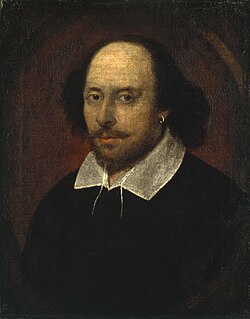William Shakespeare Quote
Thou - why, thou wilt quarrel with a man that hath a hair more or a hair less in his beard than thou hast. Thou wilt quarrel with a man for cracking nuts, having no other reason but because thow hast hazel eyes. What eye but such an eye would spy out such a quarrel? Thy head is as full of quarrels as an egg is full of meat, and yet thy head hath been beaten as addle as an egg for quarreling. Thou hast quarreled with a man for coughing in the street because he hath wakened thy dog that hath lain asleep in the sun. Didst thou not fall out with a tailor for wearing his new doublet before Easter? With another, for tying his new shoes with old ribbon? And yet thou wilt tutor me from quarreling?
Thou - why, thou wilt quarrel with a man that hath a hair more or a hair less in his beard than thou hast. Thou wilt quarrel with a man for cracking nuts, having no other reason but because thow hast hazel eyes. What eye but such an eye would spy out such a quarrel? Thy head is as full of quarrels as an egg is full of meat, and yet thy head hath been beaten as addle as an egg for quarreling. Thou hast quarreled with a man for coughing in the street because he hath wakened thy dog that hath lain asleep in the sun. Didst thou not fall out with a tailor for wearing his new doublet before Easter? With another, for tying his new shoes with old ribbon? And yet thou wilt tutor me from quarreling?
Related Quotes
About William Shakespeare
Shakespeare was born and raised in Stratford-upon-Avon, Warwickshire. At the age of 18, he married Anne Hathaway, with whom he had three children: Susanna, and twins Hamnet and Judith. Sometime between 1585 and 1592 he began a successful career in London as an actor, writer, and part-owner ("sharer") of a playing company called the Lord Chamberlain's Men, later known as the King's Men after the ascension of King James VI of Scotland to the English throne. At age 49 (around 1613) he appears to have retired to Stratford, where he died three years later. Few records of Shakespeare's private life survive; this has stimulated considerable speculation about such matters as his physical appearance, his sexuality, his religious beliefs and even certain fringe theories as to whether the works attributed to him were written by others.
Shakespeare produced most of his known works between 1589 and 1613. His early plays were primarily comedies and histories and are regarded as some of the best works produced in these genres. He then wrote mainly tragedies until 1608, among them Hamlet, Othello, King Lear and Macbeth, all considered to be among the finest works in English. In the last phase of his life he wrote tragicomedies (also known as romances) such as The Winter's Tale and The Tempest, and collaborated with other playwrights.
Many of Shakespeare's plays were published in editions of varying quality and accuracy during his lifetime. However, in 1623 John Heminges and Henry Condell, two fellow actors and friends of Shakespeare's, published a more definitive text known as the First Folio, a posthumous collected edition of Shakespeare's dramatic works that includes 36 of his plays. Its Preface includes a prescient poem by Ben Jonson, a former rival of Shakespeare, who hailed Shakespeare with the now famous epithet: "not of an age, but for all time".
